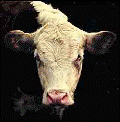Animal Science, Department of

Department of Animal Science: Dissertations, Theses, and Student Research
Date of this Version
Summer 7-2014
Document Type
Thesis
Citation
Peterson, S.J. 2014. Feeding alkaline treated and processed crop residue to feedlot cattle. Masters Thesis. Univ. of Neb.
Abstract
Chemical treatment and decreased particle size are methods used to improve digestibility and utilization of the available nutrients in low quality forages. Previous research has indicated that chemically treated corn residue can take the place of corn when included in finishing rations containing distillers grains. Also, decreasing particle size utilizing methods such as pelleting has been shown to improve DMI and ADG. However, limited research has been completed on use of chemical treatment and pelleting in growing and receiving rations. Also, an ideal distillers inclusion has not yet been identified when including alkaline treated stalks in finishing rations. Therefore, a finishing study, a receiving study, two growing studies, and a digestion study were completed to evaluate the effects of alkaline treatment and pelleting on cattle performance, carcass characteristics, and diet digestibility. For the finishing study, data suggest that feeding 10 or 20% treated corn residue with 40% modified distillers grains plus solubles (MDGS) gives comparable performance and carcass traits compared to a corn based control diet. However, if 20% MDGS is fed no more than 10% treated residue should be included. Growing studies indicated that chemical treatment improved DMI, ADG, and G:F when compared to untreated equivalents. However a greater G:F improvement (8%) was noted with treated wheat straw, while a 2% improvement was observed for treated corn residue. For the digestion study, chemical treatment was not shown to improve residue digestibility in growing calves. Pelleting was shown to improve DMI and ADG, however better G:F was noted with unpelleted diets fed to growing calves. When a pelleted complete feed was tested as a receiving ration, DMI was improved due to pelleting however ADG and G:F did not surpass observed performance paired with the unpelleted control.
Advisors: Jim C. MacDonald and Galen E. Erickson
Included in
Animal Sciences Commons, Bioresource and Agricultural Engineering Commons, Food Biotechnology Commons, Other Nutrition Commons


Comments
A THESIS Presented to the Faculty of The Graduate College at the University of Nebraska In Partial Fulfillment of Requirements For the Degree of Master of Science, Major: Animal Science (Ruminant Nutrition), Under the Supervision of Professors Jim C. MacDonald and Galen E. Erickson. Lincoln, Nebraska: July, 2014
Copyright (c) 2014 Sarah Jean Peterson